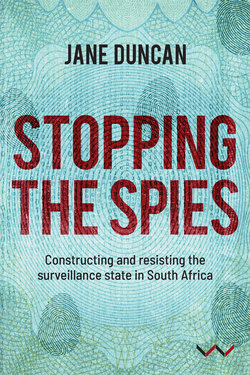Stopping the Spies

Реклама. ООО «ЛитРес», ИНН: 7719571260.
Оглавление
Jane Duncan. Stopping the Spies
Отрывок из книги
STOPPINGTHE SPIES
Constructing and resisting the
.....
But should countries in the global South, like South Africa, even be concerned? The southern African region has largely escaped the terrorism problem plaguing countries like France, the UK and the US, and African countries further north, like Nigeria and Kenya. No southern African country has its own version of al-Shabaab or Boko Haram, responsible for terrible atrocities in East Africa and Nigeria respectively. South Africa faces no significant threats to national security, especially terrorist threats, although the presence of terrorists in the country has been an enduring source of speculation. So, it could be assumed that the region should have little reason to invest in the building of surveillance states. Evidence is emerging that suggests this assumption is incorrect.
Even though South Africa is not a terrorist target, growing social discord over inequality means that the temptation is there for less principled members of the security apparatus to abuse the state’s surveillance capabilities to advantage the ruling group in the ruling party and disadvantage their perceived detractors. This possibility is not far-fetched. In 2005, the state’s mass surveillance capacities were misused to spy on perceived opponents of Jacob Zuma, then contender for the presidency. Journalists have also had their communications intercepted, and several politicians and activists have alleged that their communications were intercepted. The Mail & Guardian has quoted sources inside the police and the SSA alleging that security personnel often do not even bother to obtain directions to intercept communications.35 In 2013, it emerged during a trial that the Crime Intelligence Division of the South African Police Service (SAPS) had placed members of the extreme Afrikaner militia, the Boeremag, under surveillance while in prison, which included intercepting communications between the accused and their lawyers, in violation of attorney–client privilege.36 While it is extremely difficult to establish the extent of the problem, these incidents make the case for reforms to ensure that the state’s surveillance capacities are not abused.
.....